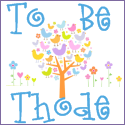This week we have a special contributor, Phyllis Hartigan, who shares with us her, "This I Believe" article that she wrote in response to a challenge she gave her book group to write their own based off the NPR book they recently read, "This I Believe." This book is based off of a 1950s version of a radio program of the same name which "prompted Americans to briefly explain their most cherished beliefs, be they religious or purely pragmatic." The current contributions to the book is different than the later because they included submissions from ordinary Americans from all walks of life. Phyllis shares with us her passion for rituals.
"I Believe in Ritual"
by Phyllis Hartigan
I believe in ritual.
I believe in the power of creating meaningful celebrations to mark transition and to express compassion in a real and tangible way.
I will never forget the moment I read the letter from my oldest sister Dale, saying that after nearly five years of remission, her breast cancer had returned, and had spread to other parts of her body. I was paralyzed with fear. I wanted to call her, to reach out, but I wasn’t sure what to say.
Over the next few days, my mom and four other siblings - along with their spouses and children - made plans to travel to Denver where Dale lived with her husband and two young sons for a long weekend together. It struck me that this trip had to be meaningful; that each of us would want to say and do just the right thing to let Dale know how much we cared. I knew it would be difficult to express my feelings, and I wondered if it would be possible to avoid inevitable family tensions.
I knew that Dale wanted more than anything to survive. And at that moment, I knew for sure that I had to create a special time during the weekend for all of us to come together to express the depth of our hope for her. I would plan what I know now to call a ritual.
In preparing, I read that rituals can create a way to focus energy for a specific purpose, such as healing, transition or celebration. I found out that in ancient society, ritual was used to carry people across difficult thresholds of transformation and that even today rituals can be meaningful signposts that point the way to human growth and change.
I learned that the detailed planning of a ritual is important. My first step was to set the intention or purpose, then to make a plan, choose symbols and even write an outline. It would be important for Dale to take part and for all participants to know ahead of time what to expect. I believe that following these steps set the tone not only for the ritual, but for the weekend, and fostered a sense of intimacy within my family I had never experienced.
We held what we called a “Fire Ceremony” that included all 19 children and adults. We met in my sister’s living room around the fireplace. We started by taking turns lighting candles, each one representing a family member. Next, each of us had prepared ahead a sheet of paper with a message, wish, prayer or simply a drawing to express our healing intention for Dale. With the understanding that fire represents transformation and that burning can release or send out our wish, we each took our turn to read, explain, or simply show her what we had prepared, and then placed our paper on a wooden skewer and into the burning fire. When it was her turn, Dale shared a drawing of herself in the future, sitting with her grandchildren – then bravely placed it in the fire to manifest what was her greatest wish. To close, Dale chose to play the song “thanks a lot” by children’s songwriter Raffi.
Afterwards, I felt as if old wounds were healed and past mistakes forgiven. I felt closeness with Dale and my family. I was proud of all us- especially Dale- for embracing the ritual and trusting the process.
I write this essay today to honor and mark the seven year anniversary of my sister’s death. In the end, our ritual did not save her. It did not - as I had at first imagined - change the outcome of her fight with breast cancer.
So what of ritual? Was the fire ceremony nothing more than a desperate reaction to fate, tragic and inexplicable? Or, by taking the time to come together and imagine the possibility of recovery, to formally express love and support for a dear sister at an important crossroads, did we not enrich ourselves and the lives of those around us?
I believe in the words of Joseph Campbell, that “the level of civilized behavior in a society is directly linked to the practice of Rites of Passage.” I believe in taking the time to create meaningful celebrations for loved ones as they journey through life’s most joyful and difficult transitions; I believe that rituals are the touchstones of the human experience.
END
There are many ways we can have rituals in our lives, from watching the rituals performed in the recent inauguration to the rituals we follow when we take a shower or come home from work. There might be more meaningful rituals we perform which has passed through our family through traditions. I had to look it up, but the difference between rituals and traditions is that a ritual can be performed every day or year after year, but traditions is "the passing down of elements of a culture from generation to generation..." or "a mode of thought or behavior followed by a people continuously from generation to generation." What are your views of rituals and what rituals do you have in your life?
Saturday, January 24, 2009
Subscribe to:
Post Comments (Atom)








![Validate my Atom 1.0 feed [Valid Atom 1.0]](valid-atom.png)
I have a ritual I perform every night. After I put the kids down to bed, I make myself a cup of hot "Sleepytime" tea, then I fluff up my pillows on my bed, then sit on the covers, pull out my Bible and have a time praying and reading. I love this time - it really helps me to put things in perspective.
ReplyDeleteMy day is full of rituals and I'm happy to share (if anyone really wants to know that is :) Our 4 year old daughter is a early bird and has been since day 1. She is my 6:30 alarm clock and I haven't needed a clock since she was born. Not too early I know so we have a wonderful ritual. She and I and talk about our dreams for about 10 minutes. Then, I put on KPBS for her 30 minutes of Clifford/Martha Speaks and grab my coffee and NIV daily bible. I only spend about 15 minutes reading but I've gotten hooked on starting my morning this way. It is the best!
ReplyDeleteAt night we have a ridiculous bed routine (one I wouldn't recommend). We brush, floss-- the boring usual and then I "Mom" reads two books, then Dad comes in and "chats" and tells stories for at least 30 minutes. Then mom comes back in for lights out and more snuggle time. Spoiled only child and parents without any glimpse of a night life:)
I love rituals and find great comfort in them. I feel my best when I have establish daily rituals. Due to my work schedule, every day is different and has been for years. On the positive side this has kept me growing in many areas of my life and out of a rut. I hope to someday be in a different place so I can establish daily rituals. As for now, I'm just in another stage of life.
ReplyDeleteOh my goodness... I love Joseph Campbell... As with the other posts, all of our lives are filled by daily rituals. Sometimes they are minute & seem mundane... getting in our cars everyday, turning on NPR for the drive...parking in the same parking stall... Some rituals are more significant. For instance saying grace before meals and prayer before going to bed or standing before a minister/ judge to get married. Society, not just ours, is based on rituals. Every culture has them and many times they are the same type of rituals even if the cultures are very different. "Rites of passage" & rituals are the building blocks of the world. Like it or not rituals & ceremony connect us all even if we do not speak the same language or feel we have the same beliefs... mlu
ReplyDelete